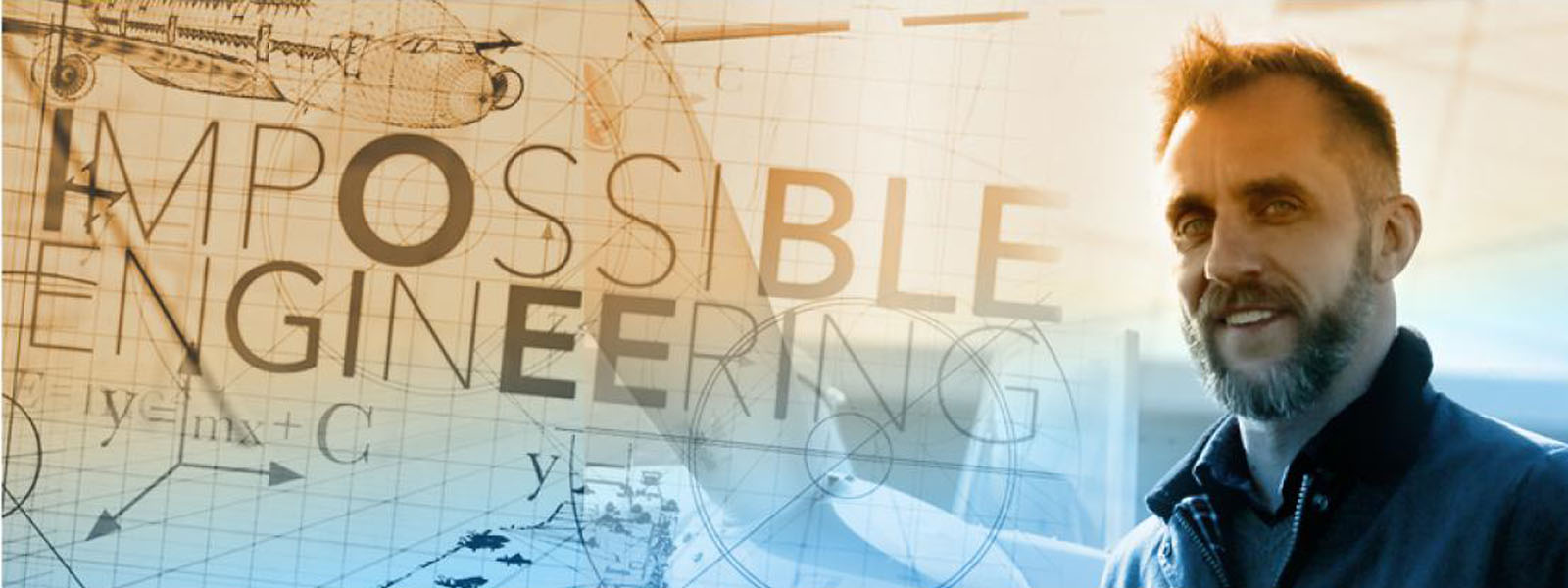Sometimes engineering looks like hours spent in a lab trying to determine which line of code is holding up an otherwise perfect program.
Other times, it looks like riding a M18 Hellcat Destroyer tank from World War II – and screaming.
It’s not exactly what Dan Dickrell, Ph.D pictured when he took a faculty position at the University of Florida seven years ago, but he isn’t complaining.
Riding the Destroyer is a few things: nerve-wracking (only slightly); electrifying (not literally); and, maybe most importantly, very fun. In this case, it’s also one of the ways Dickrell has brought science outside of the classroom—as an on-camera expert in the British documentary show, “Impossible Engineering.”
“In a way, it’s still teaching,” Dickrell said. “But you’re teaching to people that are on the other side of a camera lens instead of seats in front of you.”
The series explores significant engineering projects worldwide, tracing them back to the inceptive scientific discoveries that made them originally possible. In early 2017, the production company contacted Dickrell for a segment on automatic transmissions.
“They offered me a chance to spend the day riding around on a World War II tank and talk about what I knew, which isn’t an opportunity you just pass up,” Dickrell said.
By March, he had filmed three more episodes, and was tapped to appear in “Mysteries of the Abandoned,” a show seeking to marry an odd couple—entertainment and hard science. As a professor to one of the largest courses offered by the Herbert Wertheim College of Engineering, Dickrell has had practice finding creative ways to keep 500 undergraduate engineers’ attention while delving into mechanical engineering concepts. Occasionally, he uses a joke—other times, a mohawk or project competition.
In an age where engineers are expected to be capable of both performing in high-pressure work environments and translating their knowledge to those outside of their immediate industry, engineers like Dickrell embody an elusive but highly sought-after skill.
“After years of teaching the same class, I’ve learned the craft of explaining things simply, yet well,” Dickrell said. “It’s hard to do. And I think I can extract that from my main job, teaching at a university, to bring that to the general public.”
Doing things simply, yet well, is a mindset found throughout the Department of Mechanical & Aerospace Engineering at UF.
“The engineers that we produce are capable, resilient, and work well in a modern work environment,” Dickrell said. “What sets UF apart is the experience that we create here.”
While the coursework may be almost notoriously rigorous, Dickrell emphasizes that the students who complete the program emerge as skilled problem-solvers who are more than qualified to tackle new world problems and communicate those solutions.
“That’s the thing I’m most proud of—the people who come back and talk to me three or five years down the road, that say ‘Hey, you taught me a lot of things that I didn’t appreciate at the time, but now that I’m out here in the real world, you were right. Thanks for doing what you do.'”Dickrell said. “I love those moments.”

